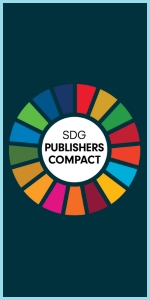Path analysis (PA) is a multivariate statistical technique, widely used, however, when carrying out PA, the parameters of the mathematical model referring to the experimental design and the effects of the study factors are not considered. Therefore, this study aims to evaluate these possible impacts on PA results. Removing parameters from the mathematical model promotes changes in the direction and magnitude of the path coefficients, regardless of the type of PA performed.

Crop & Pasture Science
Volume 75 Number 3 2024
Globally, crop simulation models are important for increasing efficiency and broadening the scope of agricultural research and management. The APSIM crop model is widely used to simulate crop production but has not been widely tested for wheat systems in the western United States. In this study, we leverage existing state-wide field trials to evaluate the model and inform further research on model validation and calibration.
CP23046 Abstract | CP23046 Full Text | CP23046PDF (1.5 MB) Open Access Article
Best pearl millet genotypes for recommendation to breeders, and use in breeding, are usually identified by evaluation in field trials in diverse environments. The main objective of this study was to assess genotypes based on mean performance across a multitude of environments. High iron and zinc lines with consistent performance across environments were identified and can be used in the development of biofortified hybrids.
Genetic variability is crucial for improving crops and breeding programs. This study was focused on evaluating genetic diversity and differentiation of 93 maize lines in Iran, through use of advanced sequencing techniques. The findings provide valuable insights into the potential for future maize breeding programs, offering exciting possibilities for enhancing main traits and productivity.
Amylose is a type of resistant starch with numerous health benefits and industrial applications. Amylose content of normal maize starch is ~25%. We report the development of high-amylose maize (~50%) suited to Indian conditions through marker-assisted backcross breeding, using a high-amylose donor and high-yielding parental lines.




